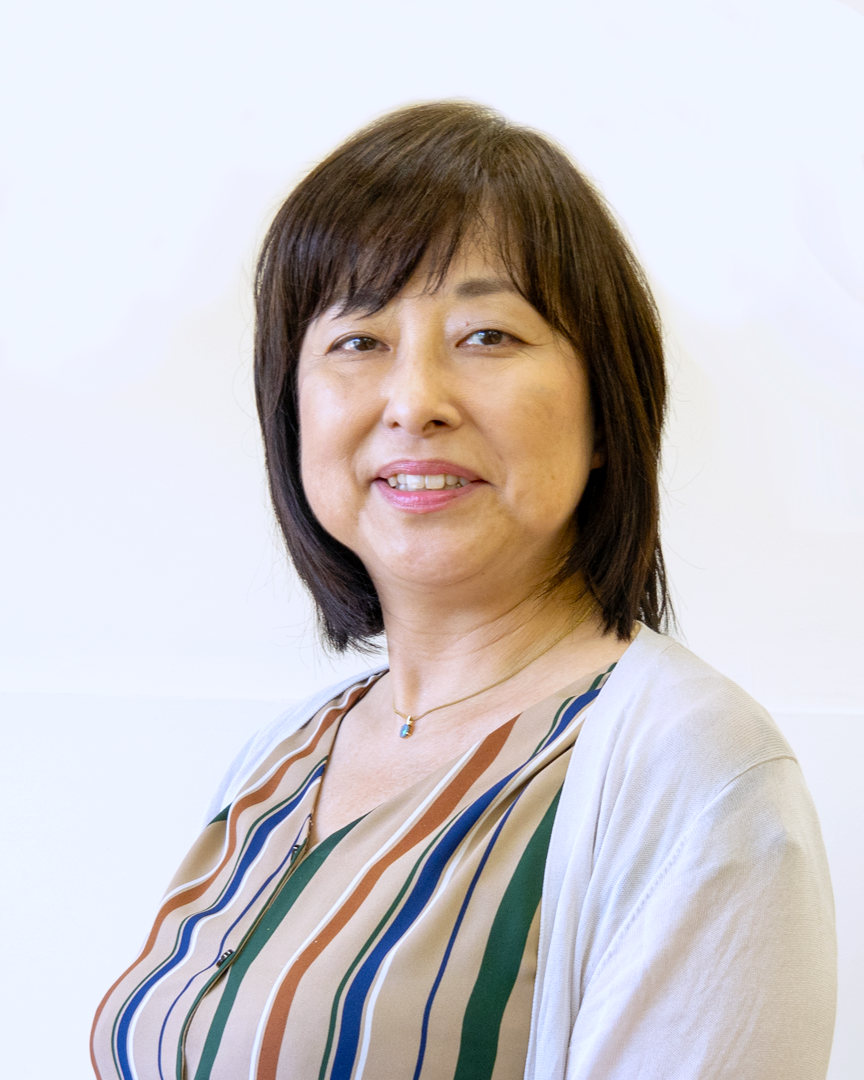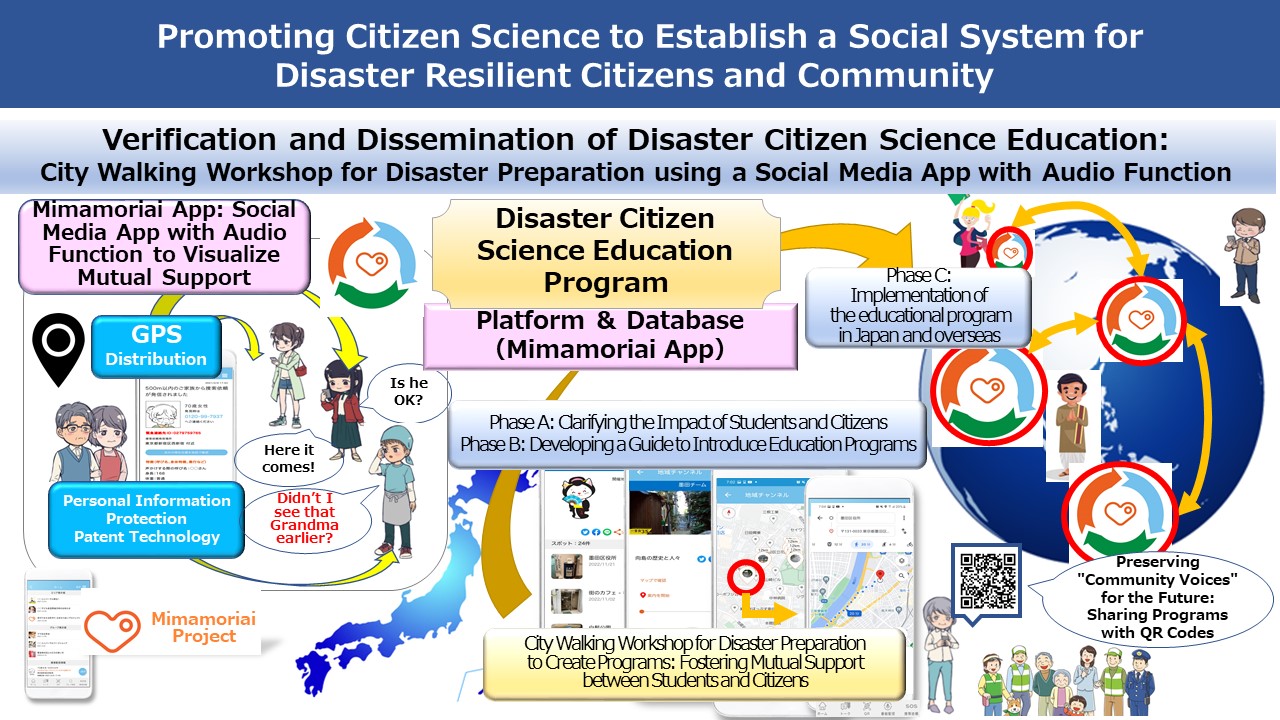Social Implementation of a Disaster Citizen Science Education Program in which university students learn from each other with citizens

-
- Principal Investigator
Professor / Miyuki ISHIBASHI
- Affiliation
Graduate School of Nursing, Chiba University
Researchmap
- Principal Investigator
Recently, natural disasters have occurred frequently both domestically and internationally. The manner in which we prepare for and recover from disasters varies depending on the disaster’s specific characteristics. Therefore, it is crucial for citizens to take a proactive role in these efforts.
This research aims to implement a sustainable social system that creates disaster-resilient citizens and communities. To achieve this goal, we demonstrate and promote a Disaster Citizen Science Education Program where students learn alongside citizens using an app called “Mimamoriai*.”
The education program to be implemented in this study is centered around a hands-on workshop where students and citizens collaborate to create and share a mixed reality (MR) called "City Walking Workshop for Disaster Preparation” using the Mimamoriai app. The program enables residents and university students to use the common platform of the Mimamoriai app to establish and maintain relationships across time and space, and learn together about disaster preparedness.
Social implementation research shall undergo four stages: research, development, verification, and dissemination. Therefore, this study will implement (verify and disseminate) the educational program the team examined and developed. We will conduct research by combining three studies. Firstly, the impact of the educational program on those involved in the program (students, citizens, university faculty members, and others) will be clarified through interviews (Phase A: Verification).
Concurrently, the learning outcomes and artifacts will be analyzed to establish the criteria (protocol) required for transferring the outcomes from the implementation phase to the dissemination phase. This will involve creating a guideline to support the introduction of the program to other universities (Phase B: protocol establishment).
Finally, the outcomes from both Phase A and B will be used to expand, evaluate, and improve the educational program so that we can disseminate them to other universities nationally and internationally.

